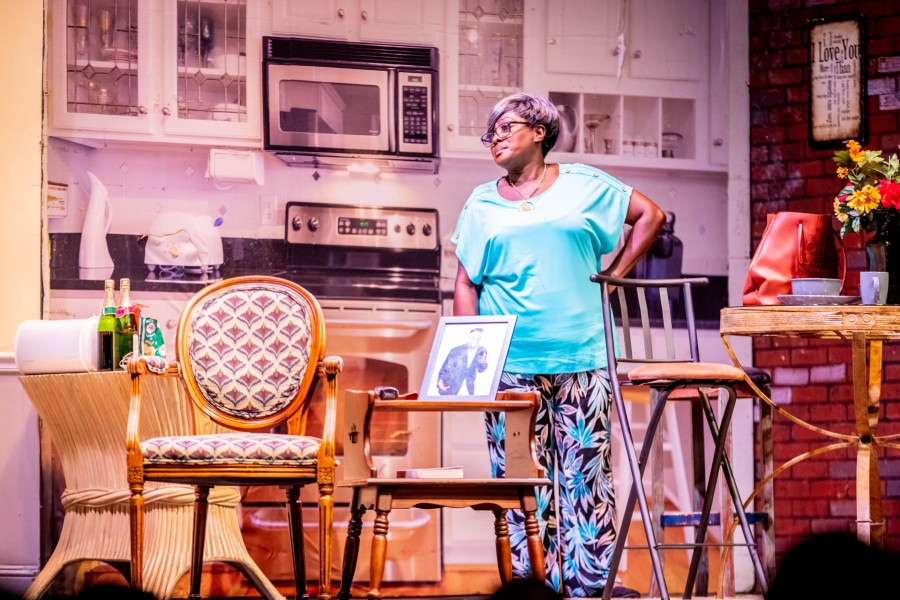
In a Q&A created with Alzheimer’s Association, we were excited to hear from Alzheimer’s Association Chief Diversity, Equity, and Inclusion Officer, Carl V. Hill, PhD., MPH.
Mr. Hills’ insights into his work is leading to strengthening the Association’s outreach from Harlem to Hollis with an emphasis on remembering those who helped us get here to provide underserved and disproportionately affected communities with resources and support to address the Alzheimer’s crisis.
Question: Who are some Alzheimer’s champions you admire in the Black/African American community?
Carl V. Hill: When Dr. Alois Alzheimer began researching the disease that now bears his name – he selected several doctors from around the globe to be his research assistants in Germany, including Dr. Solomon Carter Fuller, the first known Black/African American psychiatrist, whose work includes some of the earliest publications on dementia in America.
Dr. Fuller’s central presence in Dr. Alzheimer’s lab makes a point about representation. His involvement at the very beginning – providing his perspective as part of Dr. Alzheimer’s team – is an important legacy that should inspire how we continue to move forward.

Since Dr. Fuller, there have been many Black Americans that have inspired me. Dr. Peggye Dilworth Anderson has worked tirelessly to bring attention to the severe lack of representation in Alzheimer’s clinical trials. Her advocacy for the underrepresented and underserved has led many emerging scientists to focus on health disparities research and to a science of recruitment and retention.
I have also been inspired by the research of Dr. Lisa Barnes who has pointed to contextual factors like structural racism to be fundamental for racial/ethnic disparities in dementia. I’m also inspired by the research of Dr. Jennifer Manly, who explores the many factors over a lifetime that may put Black/African Americans at additional risk for developing Alzheimer’s or other dementia.
Some of her findings point to the importance of early life education, which really informs our need to form strong partnerships in the Black/African American community to provide quality education and awareness about dementia. Dr. Norman Anderson has been influential and continues to shape the many ways that scientists integrate environmental and sociocultural factors in addressing dementia disparities. Dr. Roland J. Thorpe, Jr., and his mentoring and training of early-career dementia scientists continue to inspire me in my work. It’s been a privilege to work with these and so many other great leaders during my career.
Question: How is the Alzheimer’s Association recognizing Black History Month in February?
CVH: The Association is celebrating Black History Month by convening important discussions about the need for improved dedication to dementia science, care and support that informs and benefits the Black/African American community. This includes discussions about specific factors that put our community at risk, and also discussions about the factors that keep Black/African Americans from being recruited to participate in dementia clinical trials.
The Alzheimer’s Association kicked off Black History Month by hosting a webinar that featured a robust discussion on the historical inequities in clinical trials and their lasting impact on Black Americans and other underrepresented populations.
The webinar examined the importance of increasing trial participation, addressing health disparities among underserved populations, and potential strategies for improving trial participation that will create a path toward a more equitable future. Our distinguished panel included: Reverend Dr. Reuben Warren, Former Director, of Tuskegee University National Center for Bioethics in Research and Healthcare, Reverend Dr. Ann Marie Bentsi-Addison Posey, Senior Director of Faith-Based Initiatives, New York City Health and Hospital Corporation and Reverend Dr. Miriam J. Burnett, Medical Director, International Health Commission, African Methodist Episcopal Church (AME) Church.
The webinar recording can be viewed here.
The Alzheimer’s Association is also joining leading researchers and community leaders for the 2nd annual Black Men’s Brain Health Conference. This two-day conference will examine how various risk factors contribute to Black men’s higher risk for Alzheimer’s disease, dementia, and other brain disorders. The conference will also explore how resilience – the brain’s ability to adapt to significant sources of stress – affects Black men’s cognitive health.
Throughout February, the Association is celebrating Black trailblazers by highlighting notable accomplishments of Black Americans in the fight against Alzheimer’s on our social channels and blog. There are also various Black History Month events taking place at local Association chapters across the country.
Question: The Alzheimer’s Association has created national partnerships with several highly respected organizations in the Black/African community – how are these partnerships helping in the fight against Alzheimer’s?
CVH: The Alzheimer’s Association is engaging with several national organizations that advocate for resources and improved health in the Black/African American community. These include Zeta Phi Beta Sorority, Inc., National Council of Negro Women, National Black Nurses Association, and Black Nurses Rock, to name a few. These national partnerships help us deliver our education, awareness, care, and support resources to Black/African American communities in ways that are culturally responsive, aware, and effective. A great example of how the Alzheimer’s Association is working with diverse partners is our work with Gdavis Productions and Films to bring the stage play, “Unforgettable,” to communities across the country. The play provides important disease-related information in a format that is lively and entertaining. Audience response to the production has been overwhelmingly positive and provides a valuable engagement opportunity with communities that are underserved and disproportionately affected by Alzheimer’s and or another dementia.
What is your message to young Black/African Americans who are interested in pursuing a career dedicated to dementia care, research, or education?
CVH: It is very important that we recruit and retain more Black/African Americans to the fields of dementia research, care, and support. We need Black/African professionals in these fields to help add to perspectives around the risk for dementia. Research tells us more every day about the importance of cardiovascular health along the life course for dementia risk.
Black/African researchers can play a vital role in helping identify barriers to quality healthcare and unique stressors in the environment that leads to poor coping behaviors and ultimately undermines cardiovascular health.

In addition, we need more Black/African Americans in care and support roles to identify ways to better deliver resources like education about dementia, referrals to timely dementia care, and support to Black/African American families and communities in ways that are culturally responsive and effective.
This is an urgent call to action because Black/African Americans are disproportionately exposed to many factors that leave us vulnerable to Alzheimer’s or other dementia.
CVH: Alzheimer’s Association Chief Diversity, Equity and Inclusion Officer, Carl V. Hill, Ph.D., MPH.
Photo credit: 1) Carl V. Hill. 2) Dr. Solomon Carter Fuller. 3) Unforgettable.
Become a Harlem Insider!
By submitting this form, you are consenting to receive marketing emails from: Harlem World Magazine, 2521 1/2 west 42nd street, Los Angeles, CA, 90008, https://www.harlemworldmagazine.com. You can revoke your consent to receive emails at any time by using the SafeUnsubscribe® link, found at the bottom of every email. Emails are serviced by Constant Contact







